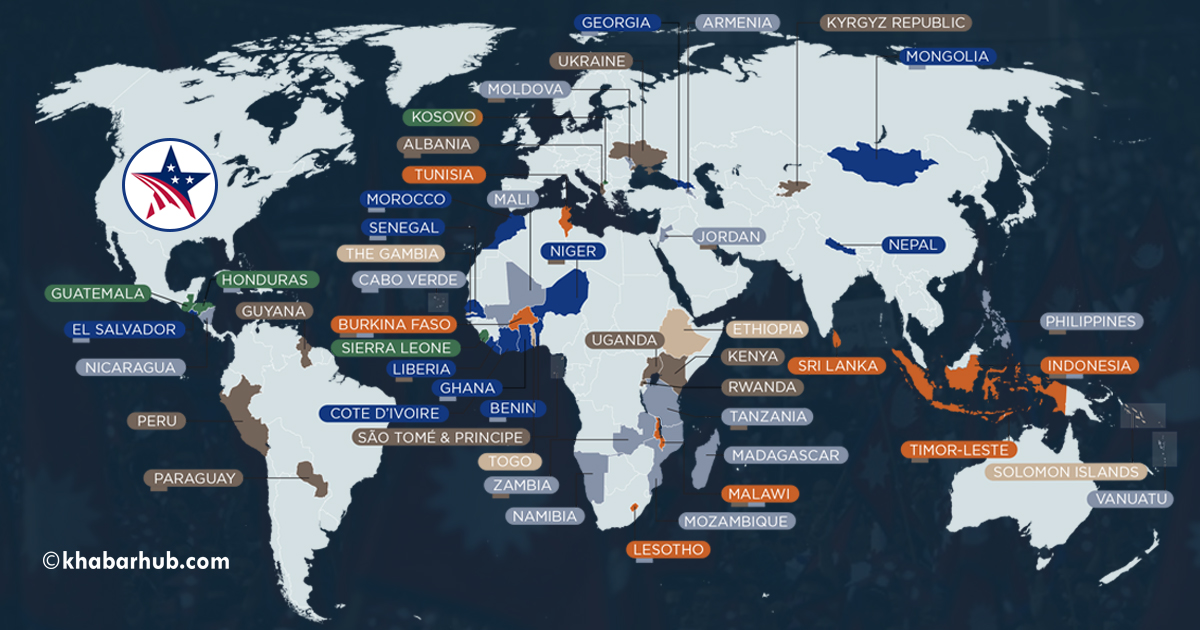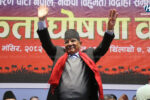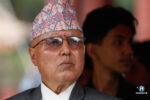KATHMANDU: Millennium Challenge Corporation – otherwise dubbed MCC – has been the talk of the town recently.
Nepal signed a compact of $500 million U.S. grant investment with the MCC on September 14, 2017, matched by $130 million from the Nepal government to support upgrades to Nepal’s roads and energy sectors.
It’s been fifteen years since the Bush administration announced that the MCC would work as a ‘tool to incentivize reform’ in the developing world.
It should be understood that when completed, it will benefit over 23 million Nepalis — about 80 percent of Nepal’s population.
Furthermore, Nepal will have an opportunity to increase its economic growth besides enhancing regional connectivity through partnership with the United States MCC.
The MCC Compact, coupled with other investments in generation and distribution, is sure to light Nepal’s future by expanding power trade in South Asia thus promoting greater regional connectivity, cooperation, and integration.
Now, a question arises: Why is a section of the ruling Nepal Communist Party (NCP) against the endorsement of the MCC?
Simply, if former Vice Chairman of National Planning Commission and economist Dr Swarnim Wagle’s words are to be plagiarized, it’s a ‘gesture of indiscretion’.
Those opposing MCC need to be clear that MCC is not a part of the Indo-Pacific Strategy, a US policy.
To recall US Ambassador Randy Berry’s statement in September at the Pavilion Hall in Kathmandu, MCC has worked in 50 countries and on every continent, and ‘requires parliamentary ratification in every country where they operate.’
This makes it clear that this is not a special condition for Nepal. Meaning, those opposing the ratification of MCC Compact should not consider this as a problem.
The idea is to develop projects that the partner country has proposed and vetted rather than imposing on local populations by having programs designed in foreign capitals.
Ambassador Berry, in fact, was eloquent to say that this would improve Nepal’s hydropower potential into reality by bringing electricity to markets that will ultimately benefit Nepal.
The Millennium Challenge Account-Nepal (MCA- Nepal), too, has appealed for timely ratification of the MCC Compact clarifying that the US government has been providing a compact grant for infrastructure developments in Nepal through the Millennium Challenge Corporation (MCC), an independent U.S. Government agency working to reduce global poverty through economic growth.
The MCC compact explicitly targets power and transport challenges since these are among the ‘binding constraints’ to Nepal’s economic growth.
Consider what Khadga Bahadur Bisht, the Executive Director of Millennium Challenge Account Nepal (MCA-N), established in June 2018, has to say: “The issue has been debated due to the concern thinking, principally, that it may be a strategic issue.”
This means that a section of the society here seem to be wondering whether it is an alliance or a strategy. If Bisht’s argument is to be considered, such opportunities are rare.
If everything goes according to the plan, the MCA-Nepal will start implementing the projects from June 30 next year. As per the plan, the MCC program has identified projects under two headings. First, high-voltage transmission lines, and second, road maintenance to be completed by June 29, 2025.
Minister for Foreign Affairs Pradeep Kumar Gyawali, too, has reiterated the government’s position of endorsing the MCC Compact from the winter session of the parliament as it is an agreement related to Nepal’s economic development.
If Foreign Minister Gyawali, as a government representative, sticks to his words, there is no alternative to ratifying it even to enhance the credibility of the country’s image in the international sector.
Experts reckon that the 500-million dollar grant under the MCC compact should not be linked with the Indo-Pacific Strategy (IPS) — a strategy many in the country believe is devised to contain China or its Belt and Road Initiative (BRI).









Comment